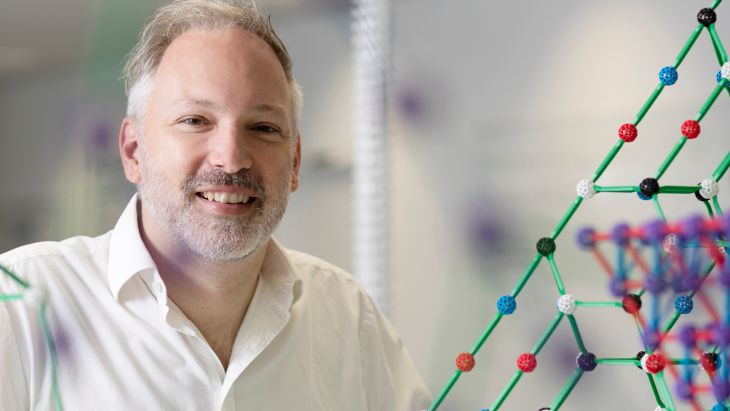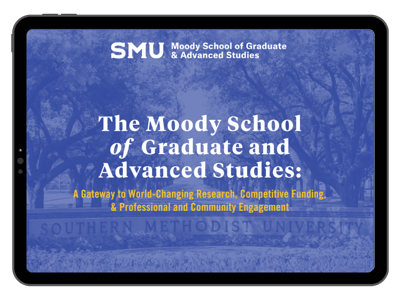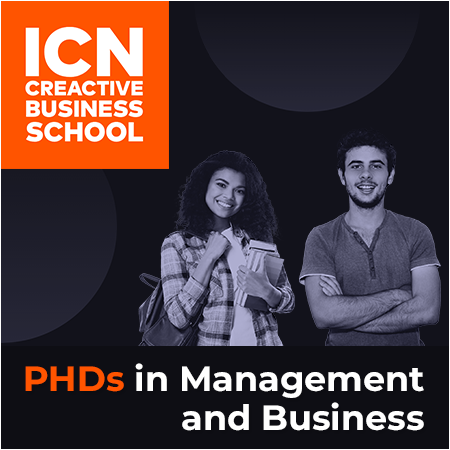Latest PhD Scholarships and Funding from Universities
Search for phd scholarships and projects from the global universities, popular categories, agricultural science, anthropology, architecture and design, arts and culture, computer science, business and economics, featured jobs, phd student in plant biotechnology.
Department of Plant Breeding SLU's Department of Plant Breeding (VF), located in Alnarp (near Lund and Malmö, in Skåne, southern Sweden),...
Closing in 20 days

Doctoral studentship in Building Technology with specialization in Structural Health Monitoring of timber structures
Welcome to Linnaeus University! Here you'll meet 2 200 staff members...
Closing in 29 days
Three PhD Students in Fluid Mechanics
Luleå University of Technology is in strong growth with world-leading competence in several research areas. We shape the future through innovative...
Closing in 15 days
PhD Researchers in Terahertz transceivers for Imaging and sensing
VJ-01 PhD Researchers in Terahertz transceivers for Imaging and sensing Contract:...
PhD Scholarship – Stem Cell Therapy
PhD Scholarship – Stem Cell Therapy Job No.: 665072 Location: The Alfred Centre Employment Type: Full-time or Part-time Duration: 3-year fixed-term...
POST-DOCTORAL POSITION in IMMUNOLOGY: Evaluating novel immune modulating therapies in HBV infections.
A Post-doctoral position is available to study novel immune modulating therapies...
Featured universities

17 open position
8 open position
1 open position
11 open position
Recent From Blog

Dec 17 2022
Why PhD in AI is so hot? How to get the scholarship in AI

Sep 09 2022
4 major reasons will make you fail in PhD journey

Dec 08 2022
Pros and Cons to Do a PhD in the UK. Become UK citizenship opportunities ?

Before a PhD scholarship interview: What should you prepare?

Jan 04 2023
General Research Trends for PhD Students in 2023

Dec 24 2022
How to Address a Cover Letter PhD
Latest jobs, phd position. energy management and carbon removal in the agri-food system.
Department of Energy and Technology At the Department of Energy and...
PhD position. Sustainable sources for protein and fat in human consumption
Recent from news.

Sydney a logical choice for $10m grant to suppress quantum errors
Quantum promiseThe quantum revolution promises to radically change technology through the...
May 09, 2024

Biden says he will stop sending bombs and artillery shells to Israel if it launches major invasion of Rafah
A Palestinian man watches smoke rise following Israeli strikes in the...
Fusion Film Festival Honors Filmmaker Joanna Arnow and Producer Daniela Taplin Lundberg
The Fusion Film Festival, NYU Tisch School of the Arts’ student-run...
May 08, 2024
Receive up-to-date info via email
Your personal information is protected by our privacy policy .
Request for modification
This site uses cookies to deliver our services and to show you relevant ads and job listings. By using our site, you acknowledge that you have read and understand our Privacy Policy , and our Terms and Conditions . Your use of SearchaPhd’s Products and Services, is subject to these policies and terms. If you do not use the cookie, some functions may not work properly.
Google PhD fellowship program
Google PhD Fellowships directly support graduate students as they pursue their PhD, as well as connect them to a Google Research Mentor.
Nurturing and maintaining strong relations with the academic community is a top priority at Google. The Google PhD Fellowship Program was created to recognize outstanding graduate students doing exceptional and innovative research in areas relevant to computer science and related fields. Fellowships support promising PhD candidates of all backgrounds who seek to influence the future of technology. Google’s mission is to foster inclusive research communities and encourage people of diverse backgrounds to apply. We currently offer fellowships in Africa, Australia, Canada, East Asia, Europe, India, Latin America, New Zealand, Southeast Asia and the United States.
Quick links
- Copy link ×
Program details
Application status, how to apply, research areas of focus, review criteria, award recipients.
Applications are currently closed.
Decisions for the 2024 application cycle will be announced via email in July 2024. Please check back in 2025 for details on future application cycles.
- Launch March 27, 2024
- Deadline May 8, 2024
- Winner selected by July 31, 2024
The details of each Fellowship vary by region. Please see our FAQ for eligibility requirements and application instructions.
PhD students must be nominated by their university. Applications should be submitted by an official representative of the university during the application window. Please see the FAQ for more information.
Australia and New Zealand
Canada and the United States
PhD students in Japan, Korea and Taiwan must be nominated by their university. After the university's nomination is completed, either an official representative of the university or the nominated students can submit applications during the application window. Please see the FAQ for more information.
India and Southeast Asia
PhD students apply directly during the application window. Please see the FAQ for more information.
Latin America
The 2024 application cycle is postponed. Please check back in 2025 for details on future application cycles.
Google PhD Fellowship students are a select group recognized by Google researchers and their institutions as some of the most promising young academics in the world. The Fellowships are awarded to students who represent the future of research in the fields listed below. Note that region-specific research areas will be listed in application forms during the application window.
Algorithms and Theory
Distributed Systems and Parallel Computing
Health and Bioscience
Human-Computer Interaction and Visualization
Machine Intelligence
Machine Perception
Natural Language Processing
Quantum Computing
Security, Privacy and Abuse Prevention
Software Engineering
Software Systems
Speech Processing
Applications are evaluated on the strength of the research proposal, research impact, student academic achievements, and leadership potential. Research proposals are evaluated for innovative concepts that are relevant to Google’s research areas, as well as aspects of robustness and potential impact to the field. Proposals should include the direction and any plans of where your work is going in addition to a comprehensive description of the research you are pursuing.
In Canada and the United States, East Asia and Latin America, essay responses are evaluated in addition to application materials to determine an overall recommendation.
What does the Google PhD Fellowship include?
Students receive named Fellowships which include a monetary award. The funds are given directly to the university to be distributed to cover the student’s expenses and stipend as appropriate. In addition, the student will be matched with a Google Research Mentor. There is no employee relationship between the student and Google as a result of receiving the fellowship. The award does not preclude future eligibility for internships or employment opportunities at Google, nor does it increase the chances of obtaining them. If students wish to apply for a job at Google, they are welcome to apply for jobs and go through the same hiring process as any other person.
- Up to 3 year Fellowship
- US $12K to cover stipend and other research related activities, travel expenses including overseas travel
- Google Research Mentor
- 1 year Fellowship
- AUD $15K to cover stipend and other research related activities, travel expenses including overseas travel
- Up to 2 year Fellowship (effective from 2024 for new recipients)
- Full tuition and fees (enrollment fees, health insurance, books) plus a stipend to be used for living expenses, travel and personal equipment
- US $10K to cover stipend and other research related activities, travel expenses including overseas travel
- Yearly bursary towards stipend / salary, health care, social benefits, tuition and fees, conference travel and personal computing equipment. The bursary varies by country.
Early-stage PhD students
- Up to 4 year Fellowship
- US $50K to cover stipend and other research related activities, travel expenses including overseas travel
Late-stage PhD students
- US $10K to recognise research contributions, cover stipend and other research related activities, travel expenses including overseas travel
- US $15K per year to cover stipend and other research related activities, travel expenses including overseas travel
Southeast Asia
- US $10K per year for up to 3 years (or up to graduation, whichever is earlier) to cover stipend and other research related activities, travel expenses including overseas travel
Is my university eligible for the PhD Fellowship Program?
Africa, Australia/New Zealand , Canada, East Asia, Europe and the United States : universities must be an accredited research institution that awards research degrees to PhD students in computer science (or an adjacent field).
India, Latin America and Southeast Asia : applications are open to universities/institutes in India, Latin America (excluding Cuba), and in eligible Southeast Asian countries/regions (Brunei, Cambodia, Indonesia, Malaysia, Myanmar, Philippines, Singapore, Thailand, Vietnam).
Restrictions : All award payments and recipients will be reviewed for compliance with relevant US and international laws, regulations and policies. Google reserves the right to withhold funding that may violate laws, regulations or our policies.
What are the eligibility requirements for students?
All regions
- Students must remain enrolled full-time in the PhD program for the duration of the Fellowship or forfeit the award.
- Google employees, and their spouses, children, and members of their household are not eligible.
- Students that are already supported by a comparable industry award are not eligible. Government or non-profit organization funding is exempt.
- Past awardees from the PhD Fellowship program are not eligible to apply again.
- Grant of the Fellowship does not mean admission to a PhD program. The awardee must separately apply and be accepted to a PhD program in computer science (or an adjacent field) at an eligible institution.
- Grant of the Fellowship will be subject to the rules and guidelines applicable in the institution where the awardee registers for the PhD program.
Nominated students in Africa, Australia and New Zealand, Canada and the United States, East Asia and Europe.
Universities should only nominate students that meet the following requirements:
- Africa: Incoming PhD students are eligible to apply, but the Fellowship award shall be contingent on the awardee registering for a full-time PhD program in computer science (or an adjacent field) within the academic award year of the Fellowship award, or the award shall be forfeited.
- Australia and New Zealand : early-stage students enrolled in the first or second year of their PhD (no requirement for completion of graduate coursework by the academic award year).
- Canada and the United States : students who have completed graduate coursework in their PhD by the academic award year when the Fellowship begins.
- East Asia: students who have completed most of graduate coursework in their PhD by the academic award year when the Fellowship begins. Students should have sufficient time for research projects after receiving a fellowship.
- Europe: Students enrolled at any stage of their PhD are eligible to apply.
Direct applicant students in India, Latin America and Southeast Asia
- Latin America : incoming or early stage-students enrolled in the first or second year of their PhD (no requirement for completion of graduate coursework by the academic award year).
What should be included in an application? What language should the application be in?
All application materials should be submitted in English.
For each student nomination, the university will be asked to submit the following material in a single, flat (not portfolio) PDF file:
- Student CV with links to website and publications (if available)
- Short (1-page) resume/CV of the student's primary PhD program advisor
- Available transcripts (mark sheets) starting from first year/semester of Bachelor's degree to date
- Research proposal (maximum 3 pages, excluding references)
- 2-3 letters of recommendation from those familiar with the nominee''s work (at least one from the thesis advisor for current PhD students)
- Student essay response (350-word limit) to: What impact would receiving this Fellowship have on your education? Describe any circumstances affecting your need for a Fellowship and what educational goals this Fellowship will enable you to accomplish.
- Transcripts of current and previous academic records
- 1-2 letters of recommendation from those familiar with the nominee's work (at least one from the thesis advisor)
Canada, East Asia, the United States
- Cover sheet signed by the Department Chair confirming the student passes eligibility requirements. (See FAQ "What are the eligibility requirements for students?")
- Short (1-page) CV of the student's primary advisor
- 2-3 letters of recommendation from those familiar with the nominee's work (at least one from the thesis advisor)
- Research / dissertation proposal (maximum 3 pages, excluding references)
- Student essay response (350-word limit) to: Describe the desired impact your research will make on the field and society, and why this is important to you. Include any personal, educational and/or professional experiences that have motivated your research interests.
- Student essay response (350-word limit) to: Describe an example of your leadership experience in which you have positively influenced others, helped resolve disputes or contributed to group efforts over time. (A leadership role can mean more than just a title. It can mean being a mentor to others, acting as the person in charge of a specific task, or taking the lead role in organizing an event or project. Think about what you accomplished and what you learned from the experience. What were your responsibilities? Did you lead a team? How did your experience change your perspective on leading others? Did you help to resolve an important dispute at your school, church, in your community or an organization? And your leadership role doesn’t necessarily have to be limited to school activities. For example, do you help out or take care of your family?)
Students will need the following documents in a single, flat (not portfolio) PDF file in order to complete an application (in English only):
- Student applicant’s resume with links to website and publications (if available)
- Short (one-page) resume/CV of the student applicant's primary PhD program advisor
- 2-3 letters of recommendation from those familiar with the applicant's work (at least one from the thesis advisor for current PhD students)
- Applicant's essay response (350-word limit) to: Describe the desired impact your research will make on the field and society, and why this is important to you. Include any personal, educational and/or professional experiences that have motivated your research interests.
- Applicant's essay response (350-word limit) to: What are your long-term goals for your pathway in computing research, and how would receiving the Google PhD Fellowship help you progress toward those goals in the short-term?
How do I apply for the PhD Fellowship Program? Who should submit the applications? Can students apply directly for a Fellowship?
Check the eligibility and application requirements in your region before applying. Submission forms are available on this page when the application period begins.
India, Latin America and Southeast Asia: students may apply directly during the application period.
Africa, Australia, Canada, East Asia, Europe, New Zealand, and the United States : students cannot apply directly to the program; they must be nominated by an eligible university during the application period.
How many students may each university nominate?
India, Latin America and Southeast Asia : applications are open directly to students with no limit to the number of students that can apply from a university.
Australia and New Zealand : universities may nominate up to two eligible students.
Canada and the United States : Universities may nominate up to four eligible students. We encourage nominating students with diverse backgrounds especially those from historically marginalized groups in the field of computing. If more than two students are nominated then we strongly encourage additional nominees who self-identify as a woman, Black / African descent, Hispanic / Latino / Latinx, Indigenous, and/or a person with a disability.
Africa, East Asia and Europe : Universities may nominate up to three eligible students. We encourage nominating students with diverse backgrounds especially those from historically marginalized groups in the field of computing. If more than two students are nominated then we strongly encourage the additional nominee who self-identifies as a woman.
*Applications are evaluated on merit. Please see FAQ for details on how applications are evaluated.
How are applications evaluated?
In Canada and the United State, East Asia and Latin America, essay responses are evaluated in addition to application materials to determine an overall recommendation.
A nominee's status as a member of a historically marginalized group is not considered in the selection of award recipients.
Research should align with Google AI Principles .
Incomplete proposals will not be considered.
How are Google PhD Fellowships given?
Any monetary awards will be paid directly to the Fellow's university for distribution. No overhead should be assessed against them.
What are the intellectual property implications of a Google PhD Fellowship?
Fellowship recipients are not subject to intellectual property restrictions unless they complete an internship at Google. If that is the case, they are subject to the same intellectual property restrictions as any other Google intern.
Will the Fellowship recipients become employees of Google?
No, Fellowship recipients do not become employees of Google due to receiving the award. The award does not preclude future eligibility for internships or employment opportunities at Google, nor does it increase the chances of obtaining them. If they are interested in working at Google, they are welcome to apply for jobs and go through the same hiring process as any other person.
Can Fellowship recipients also be considered for other Google scholarships?
Yes, Fellowship recipients are eligible for these scholarships .
After award notification, when do the Google PhD Fellowships begin?
After Google PhD Fellowship recipients are notified, the Fellowship is effective starting the following school year.
What is the program application time period?
Applications for the 2024 program will open in March 2024 and close in May 2024 for all regions. Refer to the main Google PhD Fellowship Program page for each region’s application details.
A global awards announcement will be made in September on the Google Research Blog publicly announcing all award recipients.
How can I ask additional questions?
Due to the volume of emails we receive, we may not be able to respond to questions where the answer is available on the website. If your question has not been answered by a FAQ, email:
Africa: [email protected]
Australia and New Zealand: [email protected]
Canada and the United States: [email protected]
East Asia: [email protected]
Europe: [email protected]
India: [email protected]
Latin America: [email protected]
Southeast Asia: [email protected]
See past PhD Fellowship recipients.
Discover our collection of tools and resources
Browse our library of open source projects, public datasets, APIs and more to find the tools you need to tackle your next challenge or fuel your next breakthrough.


- Find Your Perfect PhD
- Finding a PhD
Find Your PhD, Fast Finding a PhD has never been this easy – search for a PhD by keyword, location or academic area of interest. Search Now
- When looking for PhD research projects, a great place to start is with our comprehensive and up-to-date database .
- Speak with lecturers within your area of interest about potential PhD opportunities they may have.
- Attend Postgraduate Events . Whilst there, speak to current PhD students and career advisors to get an awareness of what PhD projects are on offer.
- Visit the postgraduate section of university websites and the PhD Research Council section of the GOV.UK website
Finding A PhD
Searching for PhD research projects can sometimes feel like daunting process. Often, it’s difficult to know where to find a PhD position or where to even start.
To make this searching process as easy as possible for you, we’ve curated a collection of the best places to search for PhD projects. By using our recommended collection, you should hopefully gain a greater insight into where your interests lie and which programme is best suited for you.
Our Comprehensive and Up-To-Date Directory
We can’t create a list of great resources and not include ourselves! At DiscoverPhDs, our primary aim is to connect great students to great PhD projects. To enable this, we provide a comprehensive database of PhD projects offered from universities all across the UK.
We regularly add to our database to ensure you’re getting the latest opportunities and the most relevant information and programme details. On top of this, we’ve created our database to be as easy to use as possible; all our PhD listings provide a direct ‘apply’ link or contact email address of the lead supervisor. This enables you to:
- Request further information about any aspect of the position,
- Enquire about the specific applications process,
- Connect directly with the supervisor
Universities Websites
Search on the website of the universities you are interested in as some many only be listing PhD research projects internally or may link you to other opportunities such as Professional Doctorate Programmes. As examples, have a look at the research pages of The University of Cambridge , Cardiff University , University of Leicester , Sheffield University and The University of Glasgow .
Your Current Supervisor
If you’re currently undertaking a research project or dissertation as part of your undergraduate or master’s degree, it would be a good idea to speak to your current supervisor. Not only would you have already built a good rapport with them, but having worked with you they will have a good idea on what PhD positions would utilise your strengths or best interest you. In fact, a noticeable percentage of past and current PhD students came into their PhD programme because of being recommended by their undergraduate supervisor. Your supervisor will be well-connected – make sure you take advantage of these opportunities.
Tip: Don’t just limit your discussion to your own personal supervisor. All supervisors are within their field of work because they have a natural passion for research and teaching. As such, most supervisors will be more than happy to help any student who wishes to follow in their footsteps and make their own impact.
Postgraduate Events
Nearly all universities hold regular Postgraduate Fairs and Open Days. As part of these events, current postgraduate students may be on hand to share their experiences of their projects and university. This is a fantastic opportunity to not only find out what PhDs the university is offering but to find out more about their facilities, research labs and library collection, etc. Given that you will be heavily relying on these resources during your PhD, it’s important that you know what’s provided by each university. Hearing student stories about what PhD life is really like, what to expect from supervisors and some of the challenges that current students have encountered can be really useful in your decision making process.
Besides the above, career advisers may also be available at these events. Speaking to them will help you understand what you can do with a PhD, whether a PhD is right for you, what degree class you’re expected to hold and how best to prepare for research projects. Seeing as they would have helped many PhD candidates through the decision-making process before, they will provide you with some invaluable insight that you would otherwise be oblivious to.
To help bring all Postgraduate Fairs and Open Days offered across all universities together, we’ve created a helpful Postgraduate Events page which we highly recommend you check out.
Research Councils
Research councils are nationally funded agencies which offer sponsored PhD research projects (also known as a PhD studentship). Different research councils cover different areas of research, these include:
- The Arts and Humanities Research Council (AHRC),
- The Biotechnology and Biological Sciences Research Council (BBSRC),
- Economic and Social Research Council (ESRC),
- The Engineering and Physical Sciences Research Council (EPSRC),
- Natural Environment Research Council (NERC).
The GOV.UK website has a full list of nationally-funded research councils available online. You can find further details on these councils on the GOV.UK website.
Although our database includes PhD programmes offered by these research councils, it would be a good idea to regularly browse the website of the ones you are particularly interested in case they list some internal only. These councils play an important role in supporting and encouraging doctoral researchers and they regularly hold calls for applications for PhD funding. If you or your potential supervisor have a PhD project proposal defined but need funding, then applying to these calls may become a key first milestone in your postgraduate research journey.
For example, the EPSRC offers a Doctoral Training Partnership programme in which a research student is given funding to pursue postgraduate study with a research question that aligns with the Councils core engineering and physical sciences themes. These awards often have eligibility criteria linked to them, impacting which postgraduate research students can apply; an international student, for example, may not be able to apply to a certain UK based scholarship scheme but there are several other options that can still help you fund your doctoral research; this may involve taking out a postgraduate loan (or more specifically a postgraduate doctoral loan).
To make this searching process as easy as possible for you, we’ve curated a collection of the best places to search for a PhD. By using our recommended collection, you should hopefully gain a greater insight into where your interests lie and which programme is best suited for you.
Further Resources
As you continue your search of PhD research projects, be sure to check our our PhD advice articles, including how to prepare for your PhD application, and interviews with current and past doctoral students. Many of the people we’ve interviewed have completed degrees within a STEM discipline; they offer a wide range of advice on their individual approaches to applied research and independent study, as well as sharing some the impact their work has had. Many have continued the research of their projects within academia after finishing, whilst some have developed successful careers in industry and business sectors.
It’s worth noting that when you apply to undertake doctoral study, you may first be registered as an MPhil researcher, depending on the specific doctoral programme you apply for, officially become a full PhD student after passing an upgrade viva. At the upgrade stage, some students do decide to graduate with an MPhil research degree rather than pursuing further PhD study however this is less common.
We hope the above list will help you find the perfect PhD position and earn your doctoral degree.
If you have any recommendations besides these resources, please let us know at [email protected] so we can look to add it.
If you’re ready to start your search for your PhD, start now with our PhD database .
Browse PhDs Now
Join thousands of students.
Join thousands of other students and stay up to date with the latest PhD programmes, funding opportunities and advice.
- Skip to main content
- Prospective Students
- Current Students
- Apply Apply
- Follow Us

How to Find PhD Scholarships and Grants

Financing your PhD studies can be challenging, but it's essential to your academic journey. Scholarships and grants can ease this burden, although finding and securing them may seem daunting.
Navigating your financial prospects can present a challenge, but scholarships and grants are there as available resources. In this blog, we will explain the opportunities to fund your PhD. We’ll also provide practical advice to help you find the right funding options for your PhD. Our guidance aims to give you a strong foundation for success.
Finding Doctoral Scholarships and Grants
Finding funding for graduate studies can be stressful, but scholarships and grants are available if you know where to look.
- University Funding: Universities often offer scholarships and research grants to PhD students. For instance, the SMU provides various funding options for doctoral students through the Moody School for Graduate and Advanced Studies.
- Professional Associations: Depending on your field of study, grants are often available from professional associations. Have a look at your specific discipline’s association website or reach out to them directly.
- Government and Non-Government Organizations: Both government and non-government organizations offer grants to encourage research in various fields. Explore resources like Grant.gov and The National Science Foundation.
- Industry Partners: Companies often work with universities to fund research in their industry, supporting specific projects or areas of study.
- International Scholarships: International students can find PhD scholarships in the USA, like Fulbright and DAAD .
Essential Scholarship Application Tips
- Start Early: Keep in mind that securing funding takes time, so don’t wait to start your search. The application deadline is often way before the program application deadline.
- Be Thorough and Organized: Keeping track of deadlines, application components and other details can be overwhelming. Create a system that helps you keep everything organized and in one place.
- Tailor Your Applications: Tailor each application to the specific sponsor to maximize its appeal. Remember to show why you’re a perfect fit for their funding.
- Leverage Your Network: Don't hesitate to use your academic network. Professors, colleagues, and alumni can be valuable resources for scholarship and grant opportunities.
Grants and Scholarships for PhD Students vs. Other Forms of Aid
Initially, most students think of scholarships as a lifeline for PhD funding , but it's surprisingly uncommon for students to fund their PhD with scholarships alone. Can you get a scholarship for a PhD? Absolutely. But scholarships for doctoral students can be quite competitive.
In reality, most PhD students utilize a variety of funding sources. PhD programs commonly offer doctoral assistantships and fellowships, which are typically more widely available. Some students even explore additional routes like postgraduate loans, employer support, crowdfunding, and research council grants.
Knowing the ins and outs of each type of funding can help you make a decision that best suits your academic and financial needs.
Scholarships
Scholarships, financial awards you don't need to repay, often reward merit or specific factors like demographics or career aspirations.
- Doesn't require repayment
- No obligation to perform services
Potential drawbacks:
- High competition
- May need exceptional qualifications
Grants operate much like scholarships in that they do not need to be repaid. They are frequently awarded based on need, although some may also take into consideration academic merit or field of study.
Benefits:
- Doesn’t require repayment
- Can offset a significant amount of educational expenses
Potential drawbacks:
- Competition can be fierce
- May have to meet eligibility criteria or conditions
Assistantships & Fellowships
Assistantships and fellowships are also common ways to pay for a PhD. Assistantships involve providing services to the university by undertaking teaching or research roles, usually in exchange for a stipend and tuition waiver. Fellowships, like scholarships, are merit-based and don't require repayment or work in return. Fellowships usually offer generous resources and are specific to the student's field of study.
- Provide hands-on experience in teaching or research (assistantship)
- Accompanied by generous funding and resources (fellowship)
- Fellowships often provide greater freedom for research compared to assistantships
- Time commitment can impact personal studies (mainly assistantships)
- High competition may require exceptional qualifications or research proposals
While fellowships, assistantships, grants and scholarships for PhD programs aim to reduce the financial burden, they’re understandably different in their commitments, benefits, and application process.
Discover PhD Funding at SMU
Finding and securing the right funding for your PhD is crucial in shaping a stress-free and productive doctoral journey. Remember, scholarships and grants, while beneficial, are just pieces of a wider resource puzzle that may include assistantships or fellowships.
These funding options are aimed to ease your financial commitments, so explore opportunities for each, align them with your academic goals, and pave your way towards a rewarding PhD experience .
For more helpful resources or information about SMU's Moody School of Graduate and Advanced Studies, contact us — we're here to help you on your academic journey!

learn more about
How SMU Is Investing in Graduate Students: Get to Know the Moody School of Graduate and Advanced Studies

Request more
Information.
Complete the form to reach out to us for more information
Published On
More articles, recommended articles for you, 3 tips for graduate students to consider when choosing a faculty mentor.
You’ve started studying in a great graduate program and are ready to dive into your research, make...
How to Build Your Graduate School Community
The thought of starting graduate school can be intimidating. Maybe you’re finishing up your...
Moody Means: A Stronger Professional Network and Graduate Community
Step into the future of graduate education with Moody Hall, a revolutionary building that brings...
Browse articles by topic
Subscribe to.
- U.S. Department of Health & Human Services

- Virtual Tour
- Staff Directory
- En Español
You are here
Grants & funding.
The National Institutes of Health is the largest public funder of biomedical research in the world. In fiscal year 2022, NIH invested most of its $45 billion appropriations in research seeking to enhance life, and to reduce illness and disability. NIH-funded research has led to breakthroughs and new treatments helping people live longer, healthier lives, and building the research foundation that drives discovery.
three-scientists-goggles-test-tube.jpg

Grants Home Page
NIH’s central resource for grants and funding information.
lab-glassware-with-colorful-liquid-square.jpg

Find Funding
NIH offers funding for many types of grants, contracts, and even programs that help repay loans for researchers.
calendar-page-square.jpg

Grant applications and associated documents (e.g., reference letters) are due by 5:00 PM local time of application organization on the specified due date.
submit-key-red-square.jpg


How to Apply
Instructions for submitting a grant application to NIH and other Public Health Service agencies.
female-researcher-in-lab-square.jpg

About Grants
An orientation to NIH funding, grant programs, how the grants process works, and how to apply.
binder-with-papers-on-office-desk-square.jpg

Policy & Compliance
By accepting a grant award, recipients agree to comply with the requirements in the NIH Grants Policy Statement unless the notice of award states otherwise.
blog-key-blue-square.jpg

Grants News/Blog
News, updates, and blog posts on NIH extramural grant policies, processes, events, and resources.
scientist-flipping-through-report-square.jpg

Explore opportunities at NIH for research and development contract funding.
smiling-female-researcher-square.jpg

Loan Repayment
The NIH Loan Repayment Programs repay up to $50,000 annually of a researcher’s qualified educational debt in return for a commitment to engage in NIH mission-relevant research.
Connect with Us
- More Social Media from NIH
How to Find Scholarships for Graduate School
Like for undergraduates, many scholarships and fellowships are available to students seeking a master's degree.
Finding Scholarships for Grad School

Getty Images
Scholarships are usually merit-based – such as for a certain GPA, athletic ability or hobby – or based on a student's specific area of study or identity.
While it's well known that financial aid exists for undergraduates, many students are unaware that scholarships also are available for those seeking a graduate degree.
At San Diego State University , for instance, 29% of total scholarships were awarded to graduate students during the 2022-2023 cycle, says Kari Hooker, director of scholarships in the university's Office of Financial Aid and Scholarships.
Funding amounts and availability of scholarships for graduate students – who make up about 15% of the higher education student population, according to a 2020 Center for American Progress report on graduate school debt – vary by program. But every dollar counts, experts say.
"Not surprisingly, private colleges and universities are able to fund more scholarships due to their hefty endowments," Nellie Gaynor, a graduate school and MBA admissions counselor at Ivywise, an educational consulting firm, wrote in an email. "However, students need to review these scholarship ‘discounts’ in relation to the overall package that is being presented to them including academics, student life, location , fit and cost. Ultimately, scholarships are one piece of a larger puzzle when deciding which admissions offers to accept."
The application process differs depending on the graduate scholarship, but may require filling out the Free Application for Federal Student Aid, or FAFSA , writing an essay and submitting a letter of recommendation .
For prospective professional and graduate students, here are some points to consider when tracking down scholarships to pay for an advanced degree .
The Difference Between Grants and Scholarships
Grants and scholarships are forms of financial aid that don't need to be paid back, also known as "gift aid."
Northern Arizona University 's Louis H. and Betty J. Quayle Scholarship, for instance, provides up to $4,000 per semester to part- and full-time graduate students who are members of a federally recognized Native American tribe or nation.
"Scholarships can come in all kinds of amounts and students can apply for several at a time to help cover the cost of tuition," Suzanne T. Ortega, president of the Council of Graduate Schools, a Washington, D.C.-based nonprofit organization dedicated to improving and advancing graduate education, wrote in an email.
Grants, however, are typically awarded at the college , state or federal level based on financial need, like the federal Pell Grant for low-income students. Pell Grants are generally for undergraduate students, but graduate students may be eligible for other federal grants.
Where to Look for Graduate School Scholarships
As aspiring graduate students start their search process, it's important to "really focus on the scholarships that are most appropriate for them and not put effort into scholarships where they are not truly eligible," Hooker says.
Different types of national graduate school scholarships are listed on database search websites, like Fastweb , Cappex and Unigo . GoGrad is another online resource that lists niche scholarships for prospective and current grad students.
"Often, what is called a scholarship in the undergraduate sphere is frequently called a fellowship in the graduate sphere," Ortega says. "So be sure to look for fellowships as well."
Institutional Scholarships
Students can reach out to the school's financial aid office or talk with a program department head or adviser to learn about degree- or research-specific scholarships, like teaching. As part of the Urban Teaching Apprenticeship Program's Humanities Teaching Fellowship at the University of Pennsylvania , for example, fellows are awarded a $32,000 scholarship.
"Most students will have to supplement their financial aid package with student loans (both federal and private), graduate assistantships, or work-study programs, Gaynor says. "With that being said, we have seen an increase in graduate and adult programs therefore leading to an increase in applications for graduate school admissions. Given the competitiveness in this space, schools are using school scholarships as a way to attract talent to their school."
Local Scholarships
Graduate students should not look past applying to local scholarships , which are usually less competitive than national scholarships, experts say. A student's employer , parent's employer or even place of worship, like a church or synagogue, may offer scholarships.
Another option is to find and join professional associations in a field of interest. For instance, undergraduate and graduate members of the National Black MBA Association, Inc., can apply for an award of up to $5,000.
The American Bar Association also awards $15,000 of financial aid over three years to underrepresented first-year law school students. About 10 to 20 incoming students receive the Legal Opportunity Scholarship each year.
When to Apply for Scholarships for Grad School
Deadlines for scholarships vary, but Ortega advises students to start their search as soon as they're accepted into a graduate program – if not before.
"You can apply to scholarships year-round, so always be on the lookout for new ones that pop up," she says. "Even if you planned to take out a student loan , you can still apply for scholarships to help reduce the amount of loan you need."
What's the Best Strategy to Win a Scholarship?
If there are short answers or essay questions in the application, Hooker advises students to write about what makes them unique.
"Try to be sincere and share what you are going through and how a scholarship would benefit you," she says. "We have a lot of students that work 20 plus hours a week. They need to let those committees know because those are the students that we want to support."
Before submitting a scholarship application, have a peer or undergraduate adviser review the application for grammar mistakes and other errors, experts say.
"An advantage of applying for scholarships as a graduate student versus an undergraduate is that you have more life and educational experience to draw from when writing a scholarship essay ," Ortega says. "Since graduate school programs are more focused on a specific area, it’s easier to speak to why you are pursuing this degree or area of research, which may be a compelling story for the scholarship application."
Searching for a grad school? Get our complete rankings of Best Graduate Schools.
Grad Degree Jobs With $100K+ Salaries

Tags: scholarships , graduate schools , financial aid , students , education , paying for graduate school
You May Also Like
Premeds take 5 public health courses.
Rachel Rizal May 7, 2024

Fortune 500 CEOs With a Law Degree
Cole Claybourn May 7, 2024

Why It's Hard to Get Into Med School
A.R. Cabral May 6, 2024

Pros, Cons of Unaccredited Law Schools
Gabriel Kuris May 6, 2024

An MBA and Management Consulting
Sammy Allen May 2, 2024

Med School Access for Minority Students
Cole Claybourn May 2, 2024

Different jobs with med degree
Jarek Rutz April 30, 2024

Completing Medical School in Five Years
Kate Rix April 30, 2024

Dealing With Medical School Rejection
Kathleen Franco, M.D., M.S. April 30, 2024

Should I Get a Master's Before a Ph.D?
Andrew Warner April 29, 2024

- Program Finder
- Admissions Services
- Course Directory
- Academic Calendar
- Hybrid Campus
- Lecture Series
- Convocation
- Strategy and Development
- Implementation and Impact
- Integrity and Oversight
- In the School
- In the Field
- In Baltimore
- Resources for Practitioners
- Articles & News Releases
- In The News
- Statements & Announcements
- At a Glance
- Student Life
- Strategic Priorities
- Inclusion, Diversity, Anti-Racism, and Equity (IDARE)
- What is Public Health?
- PhD Funding
- MAS Application Fee Waiver Requirements
- Master of Arts (MA) in Geography and Environmental Engineering
- Master of Arts and Master of Science in Public Health (MA/MSPH)
- Master of Arts in Public Health Biology (MAPHB)
- Master of Bioethics (MBE)
- Mission, Vision, and Values
- Student Experience
- Program Outcomes
- For Hopkins Undergraduate Students
- Master of Health Science (MHS) - Department of Biochemistry and Molecular Biology
- Master of Health Science (MHS) - Department of Epidemiology
- Alumni Update
- MHS Combined with a Certificate Program
- Master of Health Science (MHS) - Department of Molecular Microbiology and Immunology
- Alumni Highlights
- Post-Baccalaureate Program in Environmental Health for Pre-Medicine Students
- Bachelor's/MHS in Health Economics and Outcomes Research
- MHS HEOR Careers
- Frequently Asked Questions
- Master of Health Science (MHS)
- Concurrent School-Wide Master of Health Science Program in Biostatistics
- Master of Health Science - Department of Population, Family and Reproductive Health
- Master of Health Science Online (MHS) - Department of Population, Family and Reproductive Health
- Careers in Health Economics
- Core Competencies
- Meet the Director
- What is Health Economics
- MPH Capstone Schedule
- Concentrations
- Online/Part-Time Format
- Requirements
- Tuition and Funding
- Executive Board Faculty
- Master of Science (MS) in Geography and Environmental Engineering
- Independent Professional Project and Final Essay
- Program Objectives and Outcomes
- Internships
- Master of Science (ScM) - Department of Biochemistry and Molecular Biology
- Master of Science (ScM) - Department of Biostatistics
- Master of Science (ScM) - Department of Epidemiology
- Master of Science (ScM) - Department of Molecular Microbiology and Immunology
- ScM Faculty Advisers
- Master of Science in Engineering (MSE) in Geography and Environmental Engineering
- Bachelor's/MSPH in Health Policy
- FAQ for MSPH in Health Policy
- Field Placement Experience
- MSPH Capstone
- MSPH Practicum
- Required and Elective Courses
- Student Timeline
- Career Opportunities
- 38-Week Dietetics Practicum
- Completion Requirements
- MSPH/RD Program FAQ
- Program Goals
- Master's Essay Titles
- Application Fee Waiver Requirements
- Doctor of Philosophy (PhD) - Department of Biostatistics
- Doctor of Philosophy (PhD) - Department of Epidemiology
- Program Goals and Expectations
- Doctor of Philosophy (PhD) - Department of Molecular Microbiology and Immunology
- Doctor of Philosophy (PhD) - Department of Population, Family and Reproductive Health
- Doctor of Philosophy (PhD) in Clinical Investigation
- Track in Environmental Sustainability, Resilience, and Health
- Track in Exposure Sciences and Environmental Epidemiology
- Track in Health Security
- Track in Toxicology, Physiology and Molecular Mechanisms
- PhD in Geography and Environmental Engineering Faculty Advisers
- Recent Graduates and Dissertation Titles
- PhD TA Requirement
- Recent Dissertation Titles
- JHU-Tsinghua Doctor of Public Health
- Core Course Requirements
- Concentration in Women’s and Reproductive Health
- Custom Track
- Concentration in Environmental Health
- Concentration in Global Health: Policy and Evaluation
- Concentration in Health Equity and Social Justice
- Concentration in Health Policy and Management
- Concentration in Implementation Science
- Meet Current Students
- Combined Bachelor's / Master's Programs
- Concurrent MHS Option for BSPH Doctoral Students
- Concurrent MSPH Option for JHSPH Doctoral students
- Doctor of Medicine and Doctor of Philosophy (MD/PhD)
- Adolescent Health Certificate Program
- Bioethics Certificate Program
- Climate and Health Certificate Program
- Clinical Trials Certificate Program
- Community- Based Public Health Certificate Program
- Demographic Methods Certificate Program
- Environmental and Occupational Health Certificate Program
- Epidemiology for Public Health Professionals Certificate Program
- Evaluation: International Health Programs Certificate Program
- Food Systems, the Environment and Public Health Certificate Program
- Frequently Asked Questions for Certificate Programs
- Gender and Health Certificate Program
- Gerontology Certificate Program
- Global Digital Health Certificate Program
- Global Health Certificate Program
- Global Health Practice Certificate Program
- Health Communication Certificate Program
- Health Disparities and Health Inequality Certificate Program
- Health Education Certificate Program
- Health Finance and Management Certificate Program
- Health and Human Rights Certificate Program
- Healthcare Epidemiology and Infection Prevention and Control Certificate Program
- Humane Sciences and Toxicology Policy Certificate Program
- Humanitarian Health Certificate Program
- Implementation Science and Research Practice Certificate Program
- Injury and Violence Prevention Certificate Program
- International Healthcare Management and Leadership Certificate Program
- Leadership for Public Health and Healthcare Certificate Program
- Lesbian, Gay, Bisexual, Transgender, and Queer (LGBTQ) Public Health Certificate Program
- Maternal and Child Health Certificate Program
- Mental Health Policy, Economics and Services Certificate Program
- Non-Degree Students General Admissions Info
- Pharmacoepidemiology and Drug Safety Certificate Program
- Population Health Management Certificate Program
- Population and Health Certificate Program
- Product Stewardship for Sustainability Certificate Program
- Public Health Advocacy Certificate Program
- Public Health Economics Certificate Program
- Public Health Informatics Certificate Program
- Public Health Practice Certificate Program
- Declaration of Intent - Public Health Preparedness
- Public Health Training Certificate for American Indian Health Professionals
- Public Mental Health Research Certificate Program
- Quality, Patient Safety and Outcomes Research Certificate Program
- Quantitative Methods in Public Health Certificate Program
- Requirements for Successful Completion of a Certificate Program
- Rigor, Reproducibility, and Responsibility in Scientific Practice Certificate Program
- Risk Sciences and Public Policy Certificate Program
- Spatial Analysis for Public Health Certificate Program
- Training Certificate in Public Health
- Tropical Medicine Certificate Program
- Tuition for Certificate Programs
- Vaccine Science and Policy Certificate Program
- Online Student Experience
- Online Programs for Applied Learning
- Barcelona Information
- Fall Institute Housing Accommodations
- Participating Centers
- Registration, Tuition, and Fees
- Agency Scholarship Application
- General Scholarship Application
- UPF Scholarship Application
- Course Evaluations
- Online Courses
- Registration
- General Institute Tuition Information
- International Students
- Directions to the Bloomberg School
- All Courses
- Important Guidance for ONSITE Students
- D.C. Courses
- Registration and Fees
- Cancellation and Closure Policies
- Application Procedures
- Career Search
- Current Activities
- Current Trainees
- Related Links
- Process for Appointing Postdoctoral Fellows
- Message from the Director
- Program Details
- Admissions FAQ
- Current Residents
- Elective Opportunities for Visiting Trainees
- What is Occupational and Environmental Medicine?
- Admissions Info
- Graduates by Year
- Compensation and Benefits
- How to Apply
- Academic Committee
- Course Details and Registration
- Tuition and Fees
- ONLINE SOCI PROGRAM
- Principal Faculty
- Johns Hopkins RAPID Psychological First Aid
- General Application
- JHHS Application
- Areas of Study
- Important Dates
- Our Faculty
- Welcome Letter
- Descripción los Cursos
- Programa en Epidemiología para Gestores de Salud, Basado en Internet
- Consultants
- Britt Dahlberg, PhD
- Joke Bradt, PhD, MT-BC
- Mark R. Luborsky, PhD
- Marsha Wittink, PhD
- Rebekka Lee, ScD
- Su Yeon Lee-Tauler, PhD
- Theresa Hoeft, PhD
- Vicki L. Plano Clark, PhD
- Program Retreat
- Mixed Methods Applications: Illustrations
- Announcements
- 2023 Call for Applications
- Jennifer I Manuel, PhD, MSW
- Joke Bradt, PhD
- Josiemer Mattei, PhD, MPH
- Justin Sanders, MD, MSc
- Linda Charmaran, PhD
- Nao Hagiwara, PhD
- Nynikka R. A. Palmer, DrPH, MPH
- Olayinka O. Shiyanbola, BPharm, PhD
- Sarah Ronis, MD, MPH
- Susan D. Brown, PhD
- Tara Lagu, MD, MPH
- Theresa Hoft, PhD
- Wynne E. Norton, PhD
- Yvonne Mensa-Wilmot, PhD, MPH
- A. Susana Ramírez, PhD, MPH
- Animesh Sabnis, MD, MSHS
- Autumn Kieber-Emmons, MD, MPH
- Benjamin Han, MD, MPH
- Brooke A. Levandowski, PhD, MPA
- Camille R. Quinn, PhD, AM, LCSW
- Justine Wu, MD, MPH
- Kelly Aschbrenner, PhD
- Kim N. Danforth, ScD, MPH
- Loreto Leiva, PhD
- Marie Brault, PhD
- Mary E. Cooley, PhD, RN, FAAN
- Meganne K. Masko, PhD, MT-BC/L
- PhuongThao D. Le, PhD, MPH
- Rebecca Lobb, ScD, MPH
- Allegra R. Gordon, ScD MPH
- Anita Misra-Hebert, MD MPH FACP
- Arden M. Morris, MD, MPH
- Caroline Silva, PhD
- Danielle Davidov, PhD
- Hans Oh, PhD
- J. Nicholas Dionne-Odom, PhD RN ACHPN
- Jacqueline Mogle, PhD
- Jammie Hopkins, DrPH, MS
- Joe Glass, PhD MSW
- Karen Whiteman, PhD MSW
- Katie Schultz, PhD MSW
- Rose Molina, MD
- Uriyoán Colón-Ramos, ScD MPA
- Andrew Riley, PhD
- Byron J. Powell, PhD, LCSW
- Carrie Nieman MD, MPH
- Charles R. Rogers, PhD, MPH, MS, CHES®
- Emily E. Haroz, PhD
- Jennifer Tsui, Ph.D., M.P.H.
- Jessica Magidson, PhD
- Katherine Sanchez, PhD, LCSW
- Kelly Doran, MD, MHS
- Kiara Alvarez, PhD
- LaPrincess C. Brewer, MD, MPH
- Melissa Radey, PhD, MA, MSSW
- Sophia L. Johnson, PharmD, MPH, PhD
- Supriya Gupta Mohile, MD, MS
- Virginia McKay, PhD
- Andrew Cohen, MD, PhD
- Angela Chen, PhD, PMHNP-BC, RN
- Christopher Salas-Wright, PhD, MSW
- Eliza Park MD, MS
- Jaime M. Hughes, PhD, MPH, MSW
- Johanne Eliacin, PhD, HSPP
- Lingrui Liu ScD MS
- Meaghan Kennedy, MD
- Nicole Stadnick, PhD, MPH
- Paula Aristizabal, MD
- Radhika Sundararajan, MD
- Sara Mamo, AuD, PhD
- Tullika Garg, MD MPH FACS
- Allison Magnuson, DO
- Ariel Williamson PhD, DBSM
- Benita Bamgbade, PharmD, PhD
- Christopher Woodrell MD
- Hung-Jui (Ray) Tan, MD, MSHPM
- Jasmine Abrams, PhD
- Jose Alejandro Rauh-Hain, MD
- Karen Flórez, DrPH, MPH
- Lavanya Vasudevan, PhD, MPH, CPH
- Maria Garcia, MD, MPH
- Robert Brady, PhD
- Saria Hassan, MD
- Scherezade Mama, DrPH
- Yuan Lu, ScD
- 2021 Scholars
- Sign Up for Our Email List
- Workforce Training
- Cells-to-Society Courses
- Course/Section Numbers Explained
- Pathway Program with Goucher College
- The George G. Graham Lecture
As you are applying for admission to the PhD program, keep in mind that your application will also serve as your scholarship application.
All of the materials that you submit with your online application are important for the scholarship review process - especially personal statements, academic records and letters of recommendation.
The following NIH-sponsored predoctoral training grant programs are available for U.S. citizens and permanent residents who are admitted to the Department's PhD program.
Agency for Healthcare Research and Quality (AHRQ)
Provides predoctoral support to students interested in health care policy and health services research, specifically primary care policy.
National Institute on Aging (NIA)
Provides pre- and post-doctoral support to scholars who are interested in person- and family-oriented health services and outcomes research that relates to aging populations.
National Institute of Mental Health (NIMH)
1. Provides pre-doctoral support to students interested in mental health and addiction policy.
2. Provides pre- and post-doctoral support to students who will become leaders in mental health services and systems research, jointly administered by the Department of Mental Health .
National Institute for Occupational Safety and Health (NIOSH)
Provides predoctoral support for students focusing on injury prevention.
Injury and Violence Prevention Endowments
Endowed scholarships supporting doctoral study in injury and violence prevention. All are welcome to apply.
Robert Wood Johnson Foundation Funding
Provides pre- and post-doctoral support for students interested in the intersections of gun violence prevention, equity, and policy. This funding is intended to support students from historically underrepresented groups. All are welcome to apply.
Other Sources of Funding
In addition to the above institutional funding provided by these agencies, students may also apply for individual training support (you may not receive both awards.) The individual National Research Service Award (NRSA) may provide tuition and stipend support for up to three years for doctoral candidates planning to undertake research in certain areas. Typically, applications for NRSA awards are completed during the student's first year in the doctoral program.
Once a student begins work on a dissertation proposal, the Department strongly encourages the student to seek dissertation-support funding. Government agencies and private organizations provide funding for students once they are working on an approved thesis topic.
In addition to scholarships, other sources of funding include federal aid and grants from organizations outside of the Department and School. Contact the Financial Aid Office for more information on loans or federal aid. Browse multiple funding resources through Funding Opportunities .
An official website of the United States government
Here's how you know
Official websites use .gov A .gov website belongs to an official government organization in the United States.
Secure .gov websites use HTTPS. A lock ( Lock Locked padlock ) or https:// means you've safely connected to the .gov website. Share sensitive information only on official, secure websites.
Funding at NSF
- Getting Started
- Search for Funding
- Search Funded Projects (Awards)
- For Early-Career Researchers
- For Postdoctoral Researchers
- For Graduate Students
- For Undergraduates
- For Entrepreneurs
- For Industry
- NSF Initiatives
- Proposal Budget
- Senior Personnel Documents
- Data Management Plan
- Research Involving Live Vertebrate Animals
- Research Involving Human Subjects
- Submitting Your Proposal
- How We Make Funding Decisions
- Search Award Abstracts
- NSF by the Numbers
- Honorary Awards
- Proposal and Award Policies and Procedures Guide (PAPPG)
- FAQ Related to PAPPG
- NSF Policy Office
- Safe and Inclusive Work Environments
- Research Security
- Research.gov
The U.S. National Science Foundation offers hundreds of funding opportunities — including grants, cooperative agreements and fellowships — that support research and education across science and engineering.
Learn how to apply for NSF funding by visiting the links below.
Finding the right funding opportunity
Learn about NSF's funding priorities and how to find a funding opportunity that's right for you.
Preparing your proposal
Learn about the pieces that make up a proposal and how to prepare a proposal for NSF.
Submitting your proposal
Learn how to submit a proposal to NSF using one of our online systems.
How we make funding decisions
Learn about NSF's merit review process, which ensures the proposals NSF receives are reviewed in a fair, competitive, transparent and in-depth manner.
NSF 101 answers common questions asked by those interested in applying for NSF funding.
Research approaches we encourage
Learn about interdisciplinary research, convergence research and transdisciplinary research.
Newest funding opportunities
Correctness for scientific computing systems (cs2), planning proposals for centers of research excellence in science and technology (crest centers) in computer and information science and engineering (cise), mathematical modeling of policy options for evolving public health challenges (mpophc), non-academic research internships for graduate students in hydrogen and fuel cell technologies (hydrogen intern) supplemental funding opportunity.
great PhDs for bright people
Browse by discipline.
Targeted PhDs

Latest Articles

Career Tools

Copyright © jobs.ac.uk 1998 - 2024
- Career Advice
- Jobs by Email
- Advertise a Job
- Terms of use
- Privacy Policy
- Cookie Policy
- Accessibility Statement
Please start typing and select a location from the list
Browser Upgrade Recommended
For the best user experience, we recommend viewing jobs.ac.uk on one of the following:
Postgraduate Funding Search
- Study at Cambridge
- About the University
- Research at Cambridge
- Funding Search
- Afghanistan
- Aland Islands
- American Samoa
- Antigua and Barbuda
- Bonaire, Sint Eustatius & Saba
- Bosnia and Herzegovina
- Bouvet Island
- British Indian Ocean Territory
- British National Overseas
- British Overseas Territories
- Brunei Darussalam
- Burkina Faso
- Cayman Islands
- Central African Republic
- Christmas Island
- Cocos (Keeling) Islands
- Congo, The Democratic Republic
- Cook Islands
- Cote D'Ivoire
- Czech Republic
- Dominican Republic
- El Salvador
- Equatorial Guinea
- Falkland Islands (Malvinas)
- Faroe Islands
- Former Yugoslavia
- French Guiana
- French Polynesia
- French Southern Territories
- Guinea-Bissau
- Heard and McDonald Islands
- Iran (Islamic Republic Of)
- Isle of Man
- Korea, Democratic People's Rep
- Korea, Republic of
- Lao People's Democratic Rep
- Libya, The State of
- Liechtenstein
- Marshall Islands
- Micronesia, Federated States
- Moldova, Republic of
- Netherlands
- Netherlands Antilles
- New Caledonia
- New Zealand
- Norfolk Island
- North Macedonia, Republic of
- Northern Mariana Islands
- Palestine, State of
- Papua New Guinea
- Philippines
- Puerto Rico
- Russian Federation
- Saint Barthelemy
- Saint Helena
- Saint Kitts and Nevis
- Saint Lucia
- Saint Martin (French part)
- Saint Pierre and Miquelon
- Sao Tome and Principe
- Saudi Arabia
- Serbia, Republic of
- Sierra Leone
- Sint Maarten (Dutch part)
- Solomon Islands
- South Africa
- South Sudan
- St Vincent and the Grenadines
- Sth Georgia & Sth Sandwich Is
- Svalbard and Jan Mayen
- Switzerland
- Syrian Arab Republic
- Tanzania, United Republic of
- Timor-Leste, Democratic Rep of
- Trinidad and Tobago
- Turkmenistan
- Turks and Caicos Islands
- US Minor Outlying Islands
- United Arab Emirates
- United Kingdom
- United States
- Venezuela, Bolivarian Rep of
- Virgin Islands (British)
- Virgin Islands (U.S.)
- Wallis and Futuna Islands
- Western Sahara
University funding to help with your postgraduate studies
The University of Cambridge offers a range of funding opportunities to support postgraduate students with their studies.
Use the search to find details of what’s currently available from across the University’s departments, Colleges, and affiliated funding bodies including Cambridge Trust , GATES Cambridge and Research Councils(UKRI).
If you are applying for an MSt, PGDip or PGCert, please visit ICE Bursaries website.
Please note:
- Whilst we make every effort to include as many funding opportunities as possible, we cannot guarantee its completeness. You are encouraged to do your own research for other funding, particularly opportunities outside the university.
- This is a live database and funders reserve the right to update information if circumstances change. Please contact the funder directly if you have any queries.
- The University of Cambridge does not accept liability for any errors or omissions in this search.
Showing 474 results
- Highest award value
- Close sooner
- Latest updated
PhD Programme for Health Professionals
Centre for Trophoblast Research (CTR) funded PhD Studentship
Gates Cambridge Scholarship
Wellcome Sanger Institute 4-Year PhD Studentships
Krishnan-Ang Studentship for Overseas Students in the Natural Sciences
Herchel Smith Research Studentships
Cancer Research UK Cambridge Institute Studentships
CERF PhD Scholarship
Mrc studentship, professors c h lee & m perutz studentship in applied medical biotechnology.
- Christ's College
- Churchill College
- Clare College
- Corpus Christi College
- Darwin College
- Downing College
- Emmanuel College
- Fitzwilliam College
- Girton College
- Gonville and Caius College
- Homerton College
- Hughes Hall
- Jesus College
- King's College
- Lucy Cavendish College
- Magdalene College
- Murray Edwards College
- Newnham College
- Pembroke College
- Queens' College
- Robinson College
- Selwyn College
- Sidney Sussex College
- St Catharine's College
- St Edmund's College
- St John's College
- Trinity College
- Trinity Hall
- Wolfson College

- ms programs
- ms molecular cellular pathology
- Costs and Financial Aid
Costs & Financial Aid
Case Western Reserve University School of Medicine and our Office of Financial Aid partnered to share tips for all prospective and incoming students on how to optimize your unique financial aid package. We invite you to view the "Financial Aid Prep - School of Medicine Master's and Post-bacc Programs" webinar recording.
Tuition and Fees
Tuition and fees for MS students are outlined below.
Official Tuition and fees for current and prospective students of the School of Graduate Studies can be found at Graduate/Professional Tuition & Fees .
Financial Aid
Our University Financial Aid Office administers all financial aid and has comprehensive information for graduate students on their main website .
Once students are accepted into the program, they should complete the FAFSA application . The application is used to help determine your financial aid eligibility.
Our School Code: 003137
To receive federal financial aid, students must:
- Be a US citizen or eligible non-citizen
- Meet additional US Department of Education eligibility criteria .
Types of Aid
Graduate student north star award.
We invite scholars from our partnering Minority Serving Institution (MSI) and Historically Black Colleges and Universities (HBCU) to join our community. Learn More
Student Loans
For graduate students, there are three types of low-interest loans available. They include:
- Federal Direct Unsubsidized Loans
- Federal PLUS Loans
- Private Loans
Outside Scholarships
Students are highly encouraged to search and apply for outside scholarships. Look to outside scholarship search engines, employers, local foundations, clubs, and community scholarship opportunities. Students should notify the Office of University Financial Aid of any outside scholarships received.
Cost of Living
Cleveland is a very affordable city. To download our housing guide, click here .
Living & Learning in University Circle
Funding Opportunity: Brain Health Medicines Scholar Award
URL : https://www.harringtondiscovery.org/funding/brain-health-medicines
OBJECTIVES:
The Brain Health Medicines Scholar Award provides funding and drug development support to researchers whose work aims to treat, prevent or cure Alzheimer’s disease and related dementias. In addition to grant funding, Harrington Discovery Institute provides guidance and oversight in all aspects of drug development, while taking no rights to intellectual property, which is retained by you/your institution. The Brain Health Medicine Scholars selection committee seeks:
- Discoveries demonstrating rigorous science, creativity, innovation, and potential for clinical impact
- Any therapeutic modality
- Novel, validated targets
FUNDING INFORMATION:
The award includes:
- One-year grant
- $100,000 with appropriate justification
- Potential to renew for a second year based on milestones achieved
- Dedicated Project Manager for the duration of the award
- Drug development, commercial strategy and business development support from Harrington’s Therapeutics Development Center experts
- Opportunity to quality for up to $400,000 in additional funding and drug development support
Pending how far an applicant makes it in the review process, Harrington Discovery Institute may be able to provide reviewers’ comments and feedback to help the applicant strengthen the proposal for future submission.
ELIGIBILITY REQUIREMENTS:
- MD or PhD (or equivalent)
- Faculty position at an accredited academic medical center, university or research institution in the US, Canada, or UK, and conduct the majority of their research at that institution
- A project must have a single Principal Investigator (PI) who will be named the Scholar and who is responsible for project oversight and financial management. The PI may engage collaborators, core labs or commercial CROs to execute any portion of the project.
- Past recipients of Harrington awards may submit new and distinct proposals, but may not seek additional support for previously funded projects.
Applications can be submitted at any time and will be reviewed on a quarterly basis. Deadlines to submit an application for review are March 31, June 30, September 30 and December 31 annually.
View all posts
Information For...
- Accessibility Tools
- Current Students
- Postgraduate
- Postgraduate scholarships and bursaries
- Research Scholarships
Chemical Engineering: Fully Funded EPSRC iCASE and TATA Steel PhD Scholarship: Development of Biomimetic Insulation Foams (RS616)
- An introduction to postgraduate study
- Postgraduate Taught Courses
- Taught Master's Scholarships
- Contact the Postgrad Admissions team
- Postgraduate Research Programmes
- How to Apply For Your Postgraduate Course
- Postgraduate Fees and Funding
- Postgraduate Open Days
- Apply Online
- Postgraduate Careers and Employability
- Accommodation
- Postgraduate Study Video Hub
- Why study at Swansea
- Academi Hywel Teifi
- Student life
- Student Services
- Information for parents and advisors
- Enrolment, Arrivals and Welcome
- Postgraduate Enquiry
- Postgraduate programme changes
- Meet our postgraduate students
- Postgraduate Prospectus
- Fast-track for current students
Closing date: 27 May 2024
Key Information
Funding providers: EPSRC iCASE and TATA Steel UK
Subject areas: Chemistry, materials science, engineering
Project start date:
- 1 October 2024 (Enrolment open from mid-September)
Supervisors:
- Primary- Professor Peter Holliman ( [email protected] )
- Second supervisor- Professor Ian Mabbett
Aligned programme of study: PhD in Chemical Engineering
Mode of study: Full-time
Project description:
Tata Steel BSUK’s current sandwich panel insulation products offer an outstanding combination of light weight, low thermal conductivity and high fire resistance performance characteristics. However, the polyisocyanurate (PIR) rigid foam core that offers so many in-use benefits is currently made using chemicals derived largely from fossil fuels. Particularly problematic is the isocyanate component that makes up approximately 50% of the formulation but which is entirely fossil fuel-based. Hence, this project seeks to develop an alternative PIR foam that at least matches all the existing in-use performance characteristics of PIR foam but which is manufactured using either a bio-based isocyanate or is generated entirely without the use of an isocyanate.
In seeking to develop a foam formulation containing a bio-based isocyanate, there will be a strong emphasis on generating the material from a biomass source that is cheap, readily available and relatively easy to make. Compatibility with the polyol component of the formulation is vital to foam quality and consistency and is an important aspect of the experimental work. The scaling potential of the biomass conversion process will also be considered and, if required, methods to improve the speed etc will be investigated.
A few laboratory-scale examples of non-isocyanate polyurethane foam systems have been demonstrated in the literature and will form the starting point for the current work. This appears to be a relatively new field and offers great development scope but vital to a successful outcome will be the suitability of the kinetics to a foaming reaction. This unknown will be studied and, if necessary, methodologies will be developed to ensure compatibility.
Analysis and testing of development materials will form a key part of the project and a range of state of the art characterisation facilities is available at Swansea University. These are further supported by performance testing facilities (e.g. fire) at BSUK’s manufacturing facility at Shotton in North Wales.
Financial margins in the construction sector tend to be very tight so any new developments must offer outstanding performance at a competitive price. The cost implications and scale-up potential of any new insulation material are vital to product success and such considerations will form the basis of a technoeconomic analysis.
Eligibility
Candidates must hold an undergraduate degree at 2.1 level (or Non-UK equivalent as defined by Swansea University) in Engineering or similar relevant science discipline. If you are eligible to apply for the scholarship but do not hold a UK degree, you can check our comparison entry requirements (see country specific qualifications ).
English Language: IELTS 6.5 Overall (with no individual component below 5.5) or Swansea University recognised equivalent. Full details of our English Language policy, including certificate time validity, can be found here.
This scholarship is open to candidates of any nationality.
UKRI iCASE studentships are available to home and international students. Up to 30% of our cohort can comprise international students, once the limit has been reached, we are unable to make offers to international students. We are still accepting applications from international applicants. International students will not be charged the fee difference between the UK and international rate. Applicants should satisfy the UKRI eligibility requirements.
Please note that the programme requires some applicants to hold ATAS clearance, further details on ATAS scheme eligibility are available on the UK Government website.
ATAS clearance IS NOT required to be held as part of the scholarship application process, successful award winners (as appropriate) are provided with details as to how to apply for ATAS clearance in tandem with scholarship course offer.
If you have any questions regarding your academic or fee eligibility based on the above, please email [email protected] with the web-link to the scholarship(s) you are interested in.
This scholarship covers the full cost of tuition fees and an annual stipend of £19,237 plus an additional set payment of £1,500 per year .
Additional research expenses will also be available.
How to Apply
To apply, please complete your application online with the following information:
In the event you have already applied for the above programme previously, the application system may issue a warning notice and prevent application, in this event, please email [email protected] where staff will be happy to assist you in submitting your application.
- Start year – please select 2024
- Funding (page 8) –
- ‘Are you funding your studies yourself?’ – please select No
- ‘Name of Individual or organisation providing funds for study’ – please enter ‘RS616 - Insulation Foams’
*It is the responsibility of the applicant to list the above information accurately when applying, please note that applications received without the above information listed will not be considered for the scholarship award.
One application is required per individual Swansea University led research scholarship award ; applications cannot be considered listing multiple Swansea University led research scholarship awards.
We encourage you to complete the following to support our commitment to providing an environment free of discrimination and celebrating diversity at Swansea University:
- Equality, Diversity and Inclusion (EDI) Monitoring Form (online form)
As part of your online application, you MUST upload the following documents (please do not send these via e-mail). We strongly advise you to provide the listed supporting documents by the advertised application closing date. Please note that your application may not be considered without the documents listed:
- Degree certificates and transcripts (if you are currently studying for a degree, screenshots of your grades to date are sufficient)
- A cover letter including a ‘Supplementary Personal Statement’ to explain why the position particularly matches your skills and experience and how you choose to develop the project.
- Two references (academic or previous employer) on headed paper or using the Swansea University reference form . Please note that we are not able to accept references received citing private email accounts, e.g. Hotmail. Referees should cite their employment email address for verification of reference.
- Evidence of meeting English Language requirement (if applicable).
- Copy of UK resident visa (if applicable)
- Confirmation of EDI form submission (optional)
Informal enquiries are welcome, please contact Professor Peter Holliman ( [email protected] ) .
*External Partner Application Data Sharing – Please note that as part of the scholarship application selection process, application data sharing may occur with external partners outside of the University, when joint/co- funding of a scholarship project is applicable.
The Ohio State University
- BuckeyeLink
- Search Ohio State

ISE Graduate Handbook 2024-2025: BS/MS Program
For general guidelines see Graduate School Handbook
A. General Description
The ISE BS/MS Program is available to undergraduate students in ISE with very strong academic records. The combined BS/MS program allows undergraduate students to work toward an MS degree while concurrently completing their BS degree. The goal of the program is to encourage high-performing ISE students to obtain an advanced degree, thus furthering their education and academic preparation. If accepted into the program, the student is classified as a graduate student and may enroll in courses that can be simultaneously applied for credit toward both the BS and MS degrees.
B. Minimum Requirements
- All current graduate admission requirements must be met.
- All ABET requirements for a BS degree must be met upon graduation.
- A student must have a 3.5 or higher cumulative GPA to enter the program.
- A student must have completed a minimum of 90 undergraduate semester hours toward a BS degree prior to starting the program.
- A student must have completed all GEC’s prior to starting the program.
In most cases, the student enters the program at the start of their senior year. Application for the program is made by submitting a regular application to the Graduate School during the year prior, usually the Junior year. This requires that a graduate school application form be submitted with supporting documentation as detailed in the application instructions. Although applications can be accepted anytime, it is recommended that materials be submitted no later than the end of May.
D. Advantages
Technical elective courses (available for graduate credit) taken for the BS degree after admission to the BS/MS program can be applied simultaneously as credit for the MS degree in ISE. The combined BS/MS program allows as many as 10 semester hours of BS technical elective credit to be applied to the course credits required for the MS degree. Retroactive credit for technical electives cannot be given. Upon completion of the BS degree participating students should inform the ISE Graduate Studies Chair regarding the technical elective credits they intend to apply to their MS program of study.
A potential disadvantage of the BS/MS program is that graduate school tuition is higher than undergraduate tuition. This may be a factor if the student is not successful in obtaining a graduate fellowship or graduate associate position which covers tuition and fees. Inquire with the ISE Undergraduate Coordinator about the availability of scholarship support to make up the difference between graduate and undergraduate tuition costs. Students in the combined BS/MS program are eligible to compete for Ohio State University Fellowships, research, teaching, or administrative associate positions. Graduate fellowships and associate positions typically pay tuition and fees as well as a monthly stipend. Interested students are encouraged to confer with ISE faculty members during the application process and the pursuit of a graduate associate position. After the completion of the senior year and all undergraduate requirements, the student may leave the program with the BS degree or continue on to complete the MS degree.

COMMENTS
Search our free database of more than 2,800 funding awards for graduate study and professional development Get Started Robert Bosch Fellows, Germany Find Funding. Search 2,700+ fellowships, including 1,000+ fully funded PhD and master's programs, in our free database.
Astrophysical Sciences and Technology Ph.D. Rochester Institute of Technology USA School of Physics and Astronomy. This multidisciplinary program is administered by the School of Physics and Astronomy, in collaboration with the School of Mathematical Sciences and the Chester F. Read more. Supervisor: Prof AR Robinson.
Find 15000+ PhD programmes and postgraduate doctorate studies Worldwide - PhDportal.com. We offer our support to Ukrainian, Russian and international students who have had their education compromised. Click here to see more information. Click here for support, scholarships & learning options for victims of conflict.
Finding funding for a PhD can seem challenging, but it may not be as hard as you think. In fact, there are a wide range of options available: from Research Council studentships and doctoral student loans to funding from universities and independent charities, as well as a wide range of other PhD scholarships.. We've filled this section with detailed guides to all the different types of ...
The FAFSA form for becomes available for course starting the following year on 1 October annually. So if you're planning to study a Masters or PhD starting in Autumn 2024, you'll be able to fill in the FAFSA from 1 October 2023. The FAFSA deadline for 2023-24 is 30 June 2024. Search for a PhD in the USA.
PhD Scholarship - Stem Cell Therapy Job No.: 665072 Location: The Alfred Centre Employment Type: Full-time or Part-time Duration: 3-year fixed-term... Closing in 21 days. IP.
The Google PhD Fellowship Program was created to recognize outstanding graduate students doing exceptional and innovative research in areas relevant to computer science and related fields. Fellowships support promising PhD candidates of all backgrounds who seek to influence the future of technology. Google's mission is to foster inclusive ...
Find Education Scholarships for PhD Students. Every little bit helps, get a head start funding your doctoral degree using the U.S. News scholarship database. Apply for money now. 206 results. Sort by:
Funding search automatically boosts results where a word or phrase is found in the title, including the program abbreviation, over matches found elsewhere in the record. 2. Filter searches. Filters allow you to narrow results by matching specific attributes of funding opportunities. By default, no filters are applied.
Students enrolled in the economics Ph.D. program at Emory University typically receive full funding, according to the Georgia university's website. The stipend provided to students is $36,376 per ...
Your PhD starts here. Search our database of available projects and read expert advice on finding, applying for and doing a PhD. ... an important role in supporting and encouraging doctoral researchers and they regularly hold calls for applications for PhD funding. If you or your potential supervisor have a PhD project proposal defined but need ...
Use our basic and advanced search options to browse over 1,200 funding, paid research, REU, internship, and educational opportunities in STEM, including programs for underrepresented minorities, women, and students with disabilities. ... You searched for programs: for Graduate Students (PhD) AND that are portable funding Your search returned 34 ...
Finding funding for graduate studies can be stressful, but scholarships and grants are available if you know where to look. University Funding: Universities often offer scholarships and research grants to PhD students. For instance, the SMU provides various funding options for doctoral students through the Moody School for Graduate and Advanced ...
Grants & Funding. The National Institutes of Health is the largest public funder of biomedical research in the world. In fiscal year 2022, NIH invested most of its $45 billion appropriations in research seeking to enhance life, and to reduce illness and disability. NIH-funded research has led to breakthroughs and new treatments helping people ...
Funding amounts and availability of scholarships for graduate students - who make up about 15% of the higher education student population, according to a 2020 Center for American Progress report ...
The latest PhD projects delivered straight to your inbox; Access to our £6,000 scholarship competition; Weekly newsletter with funding opportunities, research proposal tips and much more; Early access to our physical and virtual postgraduate study fairs; Complete your profile. Or begin browsing FindAPhD.com
Robert Wood Johnson Foundation Funding. Provides pre- and post-doctoral support for students interested in the intersections of gun violence prevention, equity, and policy. This funding is intended to support students from historically underrepresented groups. All are welcome to apply. Other Sources of Funding.
The U.S. National Science Foundation offers hundreds of funding opportunities — including grants, cooperative agreements and fellowships — that support research and education across science and engineering. Learn how to apply for NSF funding by visiting the links below.
Media & Communications 3. Physical & Environmental Sciences 365. Politics & Government 11. Psychology 34. Social Sciences & Social Care 35. Sport & Leisure 18. Search for PhDs, research studentships, professional doctorates & more opportunities on jobs.ac.uk. Plus funding & careers advice and FREE PhD.
The University of Cambridge offers a range of funding opportunities to support postgraduate students with their studies. Use the search to find details of what's currently available from across the University's departments, Colleges, and affiliated funding bodies including Cambridge Trust , GATES Cambridge and Research Councils (UKRI).
Outside Scholarships Students are highly encouraged to search and apply for outside scholarships. Look to outside scholarship search engines, employers, local foundations, clubs, and community scholarship opportunities. Students should notify the Office of University Financial Aid of any outside scholarships received. Cost of Living
PhD Scholarships - A Guide for 2023. Written by Mark Bennett. One type of PhD fundining is a scholarship which can be won from your university or from an independent organisation such as a charity, trust or research foundation. This guide will help you understand how different types of scholarship work and what you need to apply for them.
Every year, at least twelve (12) $25,000 scholarships are awarded to students based on academic success, community service and financial need. The Chick-fil-A Community Scholars also participate in the Chick-fil-A Scholars Program, a one-year engagement that includes mentoring and leadership development alongside our Chick-fil-A True ...
The Brain Health Medicines Scholar Award provides funding and drug development support to researchers whose work aims to treat, prevent or cure Alzheimer's disease and related dementias. In addition to grant funding, Harrington Discovery Institute provides guidance and oversight in all aspects of drug development, while taking no rights to ...
To apply, please complete your application online with the following information: Course choice - please select Chemical Engineering / PhD / Full-time / 3 Year / October. In the event you have already applied for the above programme previously, the application system may issue a warning notice and prevent application, in this event, please email [email protected] where staff will ...
A Simple Introduction to PhD Funding. Written by Mark Bennett. Funding for PhD study is a little more complicated than it is for other degrees. There are lots of different ways a student can be funded and your situation may also change during the 3-4 years (or more) it takes to complete a doctorate. This short guide is here to introduce PhD ...
Upon completion of the BS degree participating students should inform the ISE Graduate Studies Chair regarding the technical elective credits they intend to apply to their MS program of study. E. Funding. A potential disadvantage of the BS/MS program is that graduate school tuition is higher than undergraduate tuition.
Fully Funded PhD Scholarships in Engineering and Informatics. Apply now for 2024. Apply now for an AHRC funded PhD studentship at Edinburgh College of Art. Funded PhD Studentships at the EPSRC Centre for Doctoral Training: NET2ZERO. Non-Clinical PhD studentships for informatics and data science researchers.